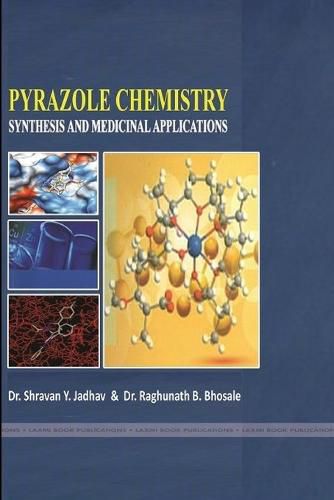Readings Newsletter
Become a Readings Member to make your shopping experience even easier.
Sign in or sign up for free!
You’re not far away from qualifying for FREE standard shipping within Australia
You’ve qualified for FREE standard shipping within Australia
The cart is loading…






This title is printed to order. This book may have been self-published. If so, we cannot guarantee the quality of the content. In the main most books will have gone through the editing process however some may not. We therefore suggest that you be aware of this before ordering this book. If in doubt check either the author or publisher’s details as we are unable to accept any returns unless they are faulty. Please contact us if you have any questions.
In recent years, eco-friendly chemical processes have attracted much attention both in the academic and industrial fields. There has been an increasing emphasis among researchers to design synthetic strategies keeping in view the principles of 'Green Chemistry'. Adopting the principles of green chemistry means to reduce or eliminate the generation and use of hazardous substances. Hazardous, toxic, and volatile organic solvents are being continuously replaced either by the use of solvent-free techniques or by using water, phase-transfer catalysts or ionic liquids.
$9.00 standard shipping within Australia
FREE standard shipping within Australia for orders over $100.00
Express & International shipping calculated at checkout
This title is printed to order. This book may have been self-published. If so, we cannot guarantee the quality of the content. In the main most books will have gone through the editing process however some may not. We therefore suggest that you be aware of this before ordering this book. If in doubt check either the author or publisher’s details as we are unable to accept any returns unless they are faulty. Please contact us if you have any questions.
In recent years, eco-friendly chemical processes have attracted much attention both in the academic and industrial fields. There has been an increasing emphasis among researchers to design synthetic strategies keeping in view the principles of 'Green Chemistry'. Adopting the principles of green chemistry means to reduce or eliminate the generation and use of hazardous substances. Hazardous, toxic, and volatile organic solvents are being continuously replaced either by the use of solvent-free techniques or by using water, phase-transfer catalysts or ionic liquids.